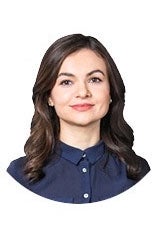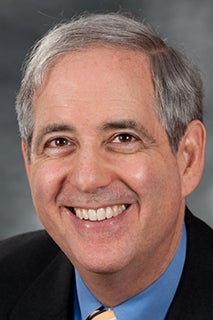Survey: There’s a 52% chance of an upcoming recession, say top economists

The U.S. economy is at a critical point as high inflation lingers and the Federal Reserve raises interest rates by the most aggressive pace in decades — even the experts are ringing recession alarm bells now.
Economists polled for Bankrate’s Second-Quarter Economic Indicator say there’s a 52 percent chance that the U.S. economy could contract within the next 12 to 18 months, a dramatic rethinking about the economic outlook after just one-third of respondents predicted a recession during the prior quarter’s poll.
Only three of the survey’s 17 experts maintained the expectation of a near 1-in-3 chance of a downturn, while the majority (65 percent) put the economy’s recession chances at 50 percent or more. One economist said the U.S. economy had a 100 percent chance of contracting.
The future is far from certain, and recessions are almost impossible to predict. Yet, the increasing odds of one occurring illustrate the issues that have been stacking up against the financial system. Lingering supply chain pressures from the ongoing coronavirus pandemic and the conflict in Ukraine are among the issues that have pushed inflation to the highest levels since the 1980s. But they also put the Fed in a defenseless position, with the central bank having no means of cooling the energy or food prices weighing on consumers’ wallets most.
Illustrating just how many storm clouds are gathering over the economy, 82 percent of economists said risks are tilted toward the downside over the next 12 to 18 months, up from 68 percent in the first-quarter poll. Just two economists said risks were tilted toward the upside, while only one said risks were evenly balanced.
Even if the Fed’s rapid rate hikes and decades-high inflation tips the financial system over, economists aren’t expecting it to be as severe as the coronavirus pandemic-induced downturn or the Great Recession before it.
“A rising or high risk of recession is not necessarily the same as certainty of a severe recession,” says Mark Hamrick, Bankrate senior economic analyst and Washington bureau chief. “Compared with experiences over the past couple of decades, the emerging situation with the economy may well once again be unlike others. People will need to remain agile with their personal finances as best they can, being aware of, and responding to changing and possibly worsening conditions.”
Forecasts and analysis:
- There’s a 52% chance of an upcoming recession, top economists say
- Experts see higher unemployment and job growth slowdown as recession risks rise
- Has inflation peaked? Here’s what the nation’s top economists say
Recession risks rising as high inflation persists
Consumer inflation re-accelerated in May and rose at its fastest pace of the pandemic era, jumping a faster-than-expected 8.6 percent pace from a year ago, according to the Bureau of Labor Statistics. Economists — and some Fed officials themselves — were predicting inflation to peak in early 2022.
Inflation didn’t just climb in pandemic-ravaged sectors but also in services and rent. Even more haunting to Fed officials, key gauges tracking consumers’ expectations for future inflation were starting to pick up. All of those factors could prove to make stubbornly high inflation more enduring.
The news put the Fed in a tough position leading up to its June meeting. After signaling to markets they were preparing to hike interest rates for the third straight meeting by half a percentage point, officials abandoned that commitment less than a week before officially announcing their June rate hike. Instead, they ultimately ended up raising interest rates by three-quarters of a point — the biggest rate hike since 1994 — and broadcasted expectations to raise interest rates all the way to a 3.25-3.5 percent target range, the highest since 2008.
“The Fed has a very difficult task,” says Gus Faucher, chief economist at PNC Financial Services Group. “It is possible to slow growth and inflation without a recession, but there is little margin for error. In addition, there is the potential for further negative shocks to the growth and inflation outlooks that could lead to a recession.”
Economists in Bankrate’s survey largely see the Fed following through, with the majority bracing for a federal funds rate in the upper end of the 3-4 percent range.
Inflation is a major problem for the U.S. economy. Nearly 3 in 4 Americans (or 74 percent) said higher prices were hurting their finances, according to a March Bankrate poll. But the Fed risks doing too much, too fast. Making the job even harder, Fed officials have major blind spots, working with backward-looking data and hiking into an economy that was already expected to slow from last year’s major fiscal stimulus.
Inflation is also more than four times higher than the Fed’s 2 percent objective and supply issues are still contributing to those pressures, calling into question just how high rates will have to rise before they start to cool prices.
“The Fed’s need to bring inflation back down to their 2 percent target puts risks to the U.S. economy squarely to the downside,” says Scott Anderson, executive vice president and chief economist, Bank of the West. “The Fed has a 50/50 chance to land this plane without causing a recession, but they need some help from the supply-side of the economy. Global oil prices need to drop significantly and supply chains need to untangle.”
Hear from the experts

The war in Ukraine, lockdowns in China, supply chain bottlenecks and coordinated tightening by central banks around the world are all risks to growth in the U.S. A growth recession is in the cards. … The Fed could succeed in managing a soft landing, but headwinds are mounting. The Fed will achieve its inflation goal by the end of 2023, and will quickly have to start easing policy in order to bring down unemployment that will rise due to their current tightening regime.— Yelena Maleyev, Economist, Grant Thornton LLP

The risk of a recession has definitely increased. However, overall household balance sheets are in fairly good shape, allowing many households to continue spending, albeit at a somewhat lower level. This should lead to a growth recession, not a classic recession. There is more hope than usual for a soft landing. There is definite danger of the Fed stepping too hard on the brakes.— Bernard Markstein, President and Chief Economist, Markstein Advisors

The risks to the U.S. economy have risen significantly as it faces three once-in-a-generation challenges: decades-high inflation, an aggressive Federal Reserve and renewed geopolitical instability. While a recession is not a foregone conclusion given the still-solid position of households, the developments over the next 12-18 months will depend heavily on how stubborn price pressures continue to be and how substantially the Fed’s interest rate increases will dampen consumer spending and weaken business investment. With more than $2 trillion in excess savings still in the marketplace, there is reason to believe that households can continue to open their wallets. However, the question in the months ahead is set to shift from the ability to spend to willingness to do so. With consumer sentiment at a record low and big declines occurring in equity and crypto markets, people may decide to hold on to their cash and wait out the storm.— Joseph Mayans, Director of US Economics, Experian
Methodology
The Second-Quarter 2022 Bankrate Economic Indicator Survey of economists was conducted June 20-27. Survey requests were emailed to economists nationwide, and responses were submitted voluntarily online. Responding were: Ryan Sweet, senior director of economic research, Moody’s Analytics; Yelena Maleyev, economist, Grant Thornton LLP; Odeta Kushi, deputy chief economist, First American Financial Corporation; Lawrence Yun, chief economist, National Association of Realtors; Robert Hughes, senior research faculty, American Institute for Economic Research; Joseph Mayans, director of U.S. economics, Experian; Mike Fratantoni, chief economist, Mortgage Bankers Association; Bernard Baumohl, chief global economist, The Economic Outlook Group; Scott Anderson, executive vice president and chief economist, Bank of the West; Bernard Markstein, president and chief economist, Markstein Advisors; Mike Englund, chief economist, Action Economics; John E. Silvia, founder and president, Dynamic Economic Strategies; Bill Dunkelberg, chief economist, National Federation of Independent Business; Tenpao Lee, professor of economics, Niagara University; Robert Frick, corporate economist, Navy Federal Credit Union; Gus Faucher, chief economist, PNC Financial Services Group; and Peter Morici, economist and professor of business, University of Maryland.
Why we ask for feedback Your feedback helps us improve our content and services. It takes less than a minute to complete.
Your responses are anonymous and will only be used for improving our website.






